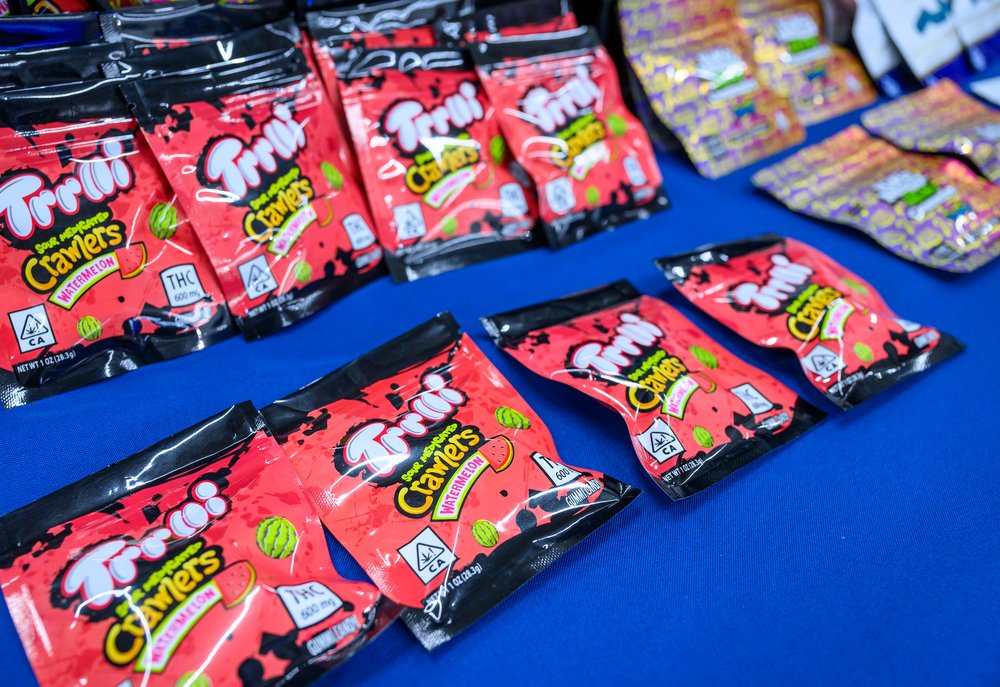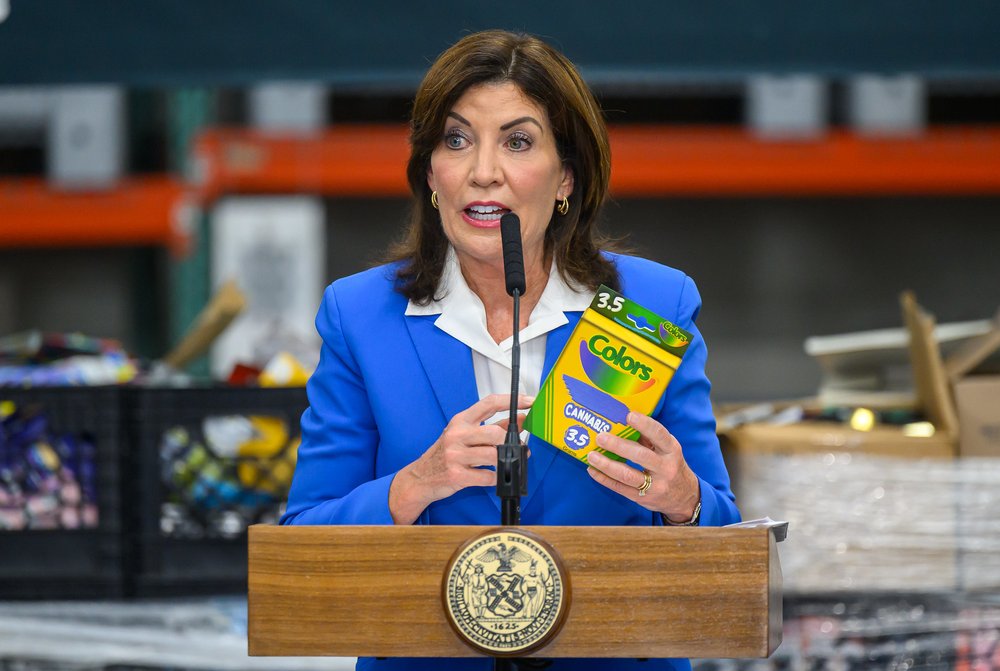More than 750 NYC stores selling weed without license shuttered since May, mayor says
July 31, 2024, 1:51 p.m.
Authorities say they have seized more than $41 million worth of illegal products and issued more than $65 million in penalties in recent months.

New York City’s turbocharged cannabis enforcement effort shut down more than 750 stores suspected of selling marijuana without a license since early May, Mayor Eric Adams announced at a press conference in the Bronx on Wednesday.
The NYPD and city's sheriff’s office have seized more than $41 million worth of illegal products and issued more than $65 million in penalties during the crackdown, known as “Operation Padlock to Protect,” according to local officials.
“For too long these shops have contributed to the feeling that everything and anything goes,” Adams said. “And everything and anything won’t go in this city.”
The mayor added that the shops have attracted crime and in some cases have experienced armed robberies.
Statewide, about 1,000 unlicensed stores have been shut down in recent months, New York Gov. Kathy Hochul said on Wednesday. She spoke alongside a gaggle of local and state elected officials who are sounding the alarm about unlicensed shops in their neighborhoods.
Hochul and Adams both emphasized that such shops pose a danger to their communities by selling colorful products that could appeal to children, as opposed to the strictly controlled packaging on state-approved products.
“This is intentionally designed to draw the eye and interest of our children,” Hochul said, holding up a seized cannabis product packaged in a box resembling a box of crayons.
Previous city and state efforts to crack down on unlicensed marijuana shops were slow to show results. There were about 2,900 unlicensed cannabis stores operating across New York City before Operation Padlock got underway in May, according to estimates from the sheriff’s office.

About 60 state-sanctioned dispensaries have started selling marijuana citywide since the first one opened in December 2022.
Closures of unregulated stores ramped up in April after changes to state and city cannabis laws were enacted. The law now empowers local law enforcement to close unlicensed cannabis vendors on the first inspection, without a court order. But it’s still unclear exactly how many of these closures are sticking.
Shop owners are entitled to a hearing with the city’s Office of Administrative Trials and Hearings within five business days, at which the hearing officer determines whether to uphold any fines and violations. But the hearing officer can only recommend whether the shop should remain closed. The ultimate decision to keep the store padlocked for up to a year is up to New York City Sheriff Anthony Miranda.
The sheriff’s office has so far declined to share how many of the shops that were padlocked remain closed. In some cases, hearing officers have recommended that closures be overturned because of errors that police made when they served the violations, according to records from the Office of Administrative Trials and Hearings.
Local elected officials on Wednesday praised Adams and the city agencies involved in the crackdown for making a sizable dent in the number of illegal weed bodegas across the five boroughs.
But some owners of shops that have been shuttered are pushing back. A group of 27 business owners filed a class-action lawsuit against the city last month, alleging that the current enforcement practice violates their constitutional right to due process. The judge in that case denied the group’s request for a preliminary injunction that would block the city from continuing to close shops while the case proceeds.
Sultan Yahya, one of the plaintiffs in the case, said the city padlocked his convenience store on Roosevelt Avenue in Queens. He said he didn’t initially intend to sell cannabis at the store when he opened it two years ago, but he began stocking cannabis products in response to requests from customers.
“Everybody started doing it,” he said, adding that the city’s original lack of enforcement encouraged him to follow suit. “Why didn’t they stop people from the beginning?”
Yahya said that by the time his store was shut down, about 20% to 30% of his revenue was coming from cannabis. He said he would be able to make a living without selling those products if he was allowed to reopen, though he noted he wasn’t sure how long he’d be able to hold onto his lease with a padlock on the door.
Lawsuit aims to stop NYC's mass crackdown on marijuana shops, says it's unconstitutional Weed enforcement has floundered so far. Will Gov. Hochul’s efforts change that? NYC’s first legal recreational weed dispensary to open in East Village on Dec. 29